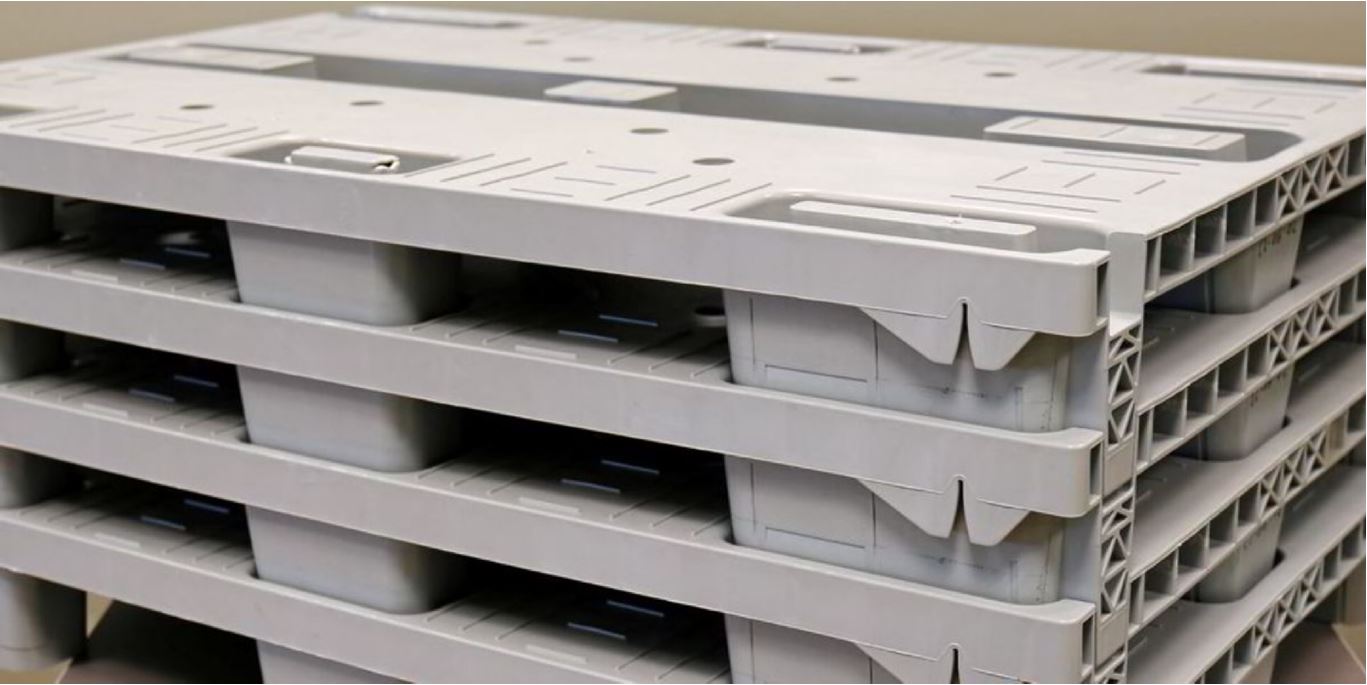Nutreco makes pallets from recycled plastic
There is more to a pallet and sustainability that one imagines. How hygienic is it? Does it add up to an amount of the CO2 emissions during transportation? What does happen to it after it’s used?
Skretting partners with Aion, the spin-off of Norwegian krill harvest company Aker BioMarine. The goal? To tackle pallet waste in
industry together.
Aion had completed a pilot project for Skretting in which big fishmeal bags have been recycled and repurposed into plastic pallets.
For Aker BioMarine, these bags account for 500,000 metric tons of plastic waste every year. You can imagine that repurposing that amount of plastic waste makes a significant gain for sustainability.
Replacing wood pallets with Aion’s circular plastic pallets results in major carbon emission reduction and sizeable cost reduction, too.
For example, Aion is now ready to replicate what is has done with Skretting for a transportation route of their mother company, Aker BioMarine. By using the repurposed plastic pallets instead of the wooden ones on their route Houston – Montevideo, they will achieve an estimated 84% reduction in carbon emissions, and a 50% reduction in costs over the 10-year lifespan of the pallets.
“For many industries, including the seafood industry, collaboration between parties is vital to drive sustainable change. This is a first step in the right direction,” Paul Bestford, chief procurement office at Nutreco told IntraFish.
Nutreco is looking at adopting the new pallets across its group, including for its land-based animal division.
“We are looking at other parts across the Nutreco group where this scheme can be implemented,” Bestford said.
About 7.6 billion single-use wooden pallets are produced each year at a current value of about NOK 200 million (€19.4 million/$20.2 million). The Norwegian salmon industry accounts for four million pallets. To produce the 7.6 billion pallets, about 30,000 million tons of wood is needed every year.
The new plastic pallets could last up to 10 years and can be made from any good quality, industrial plastic. The plastic pallets are more hygienic than their wooden counterparts, they are reusable, and weigh about 7 kilos less.
